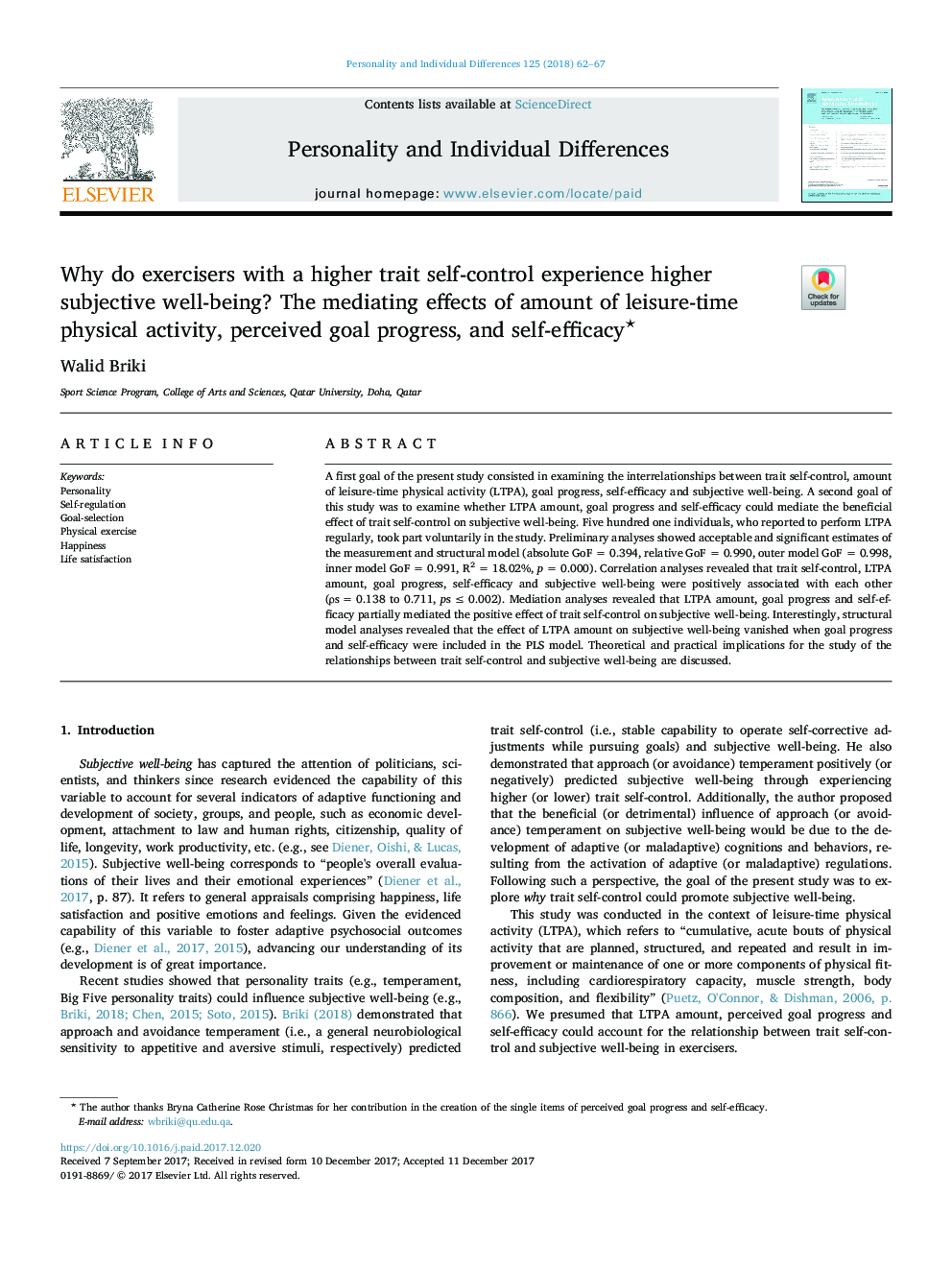| Article ID | Journal | Published Year | Pages | File Type |
|---|---|---|---|---|
| 7249001 | Personality and Individual Differences | 2018 | 6 Pages |
Abstract
A first goal of the present study consisted in examining the interrelationships between trait self-control, amount of leisure-time physical activity (LTPA), goal progress, self-efficacy and subjective well-being. A second goal of this study was to examine whether LTPA amount, goal progress and self-efficacy could mediate the beneficial effect of trait self-control on subjective well-being. Five hundred one individuals, who reported to perform LTPA regularly, took part voluntarily in the study. Preliminary analyses showed acceptable and significant estimates of the measurement and structural model (absolute GoF = 0.394, relative GoF = 0.990, outer model GoF = 0.998, inner model GoF = 0.991, R2 = 18.02%, p = 0.000). Correlation analyses revealed that trait self-control, LTPA amount, goal progress, self-efficacy and subjective well-being were positively associated with each other (Ïs = 0.138 to 0.711, ps â¤Â 0.002). Mediation analyses revealed that LTPA amount, goal progress and self-efficacy partially mediated the positive effect of trait self-control on subjective well-being. Interestingly, structural model analyses revealed that the effect of LTPA amount on subjective well-being vanished when goal progress and self-efficacy were included in the PLS model. Theoretical and practical implications for the study of the relationships between trait self-control and subjective well-being are discussed.
Related Topics
Life Sciences
Neuroscience
Behavioral Neuroscience
Authors
Walid Briki,
